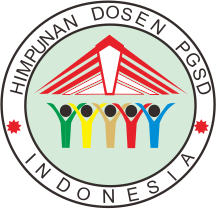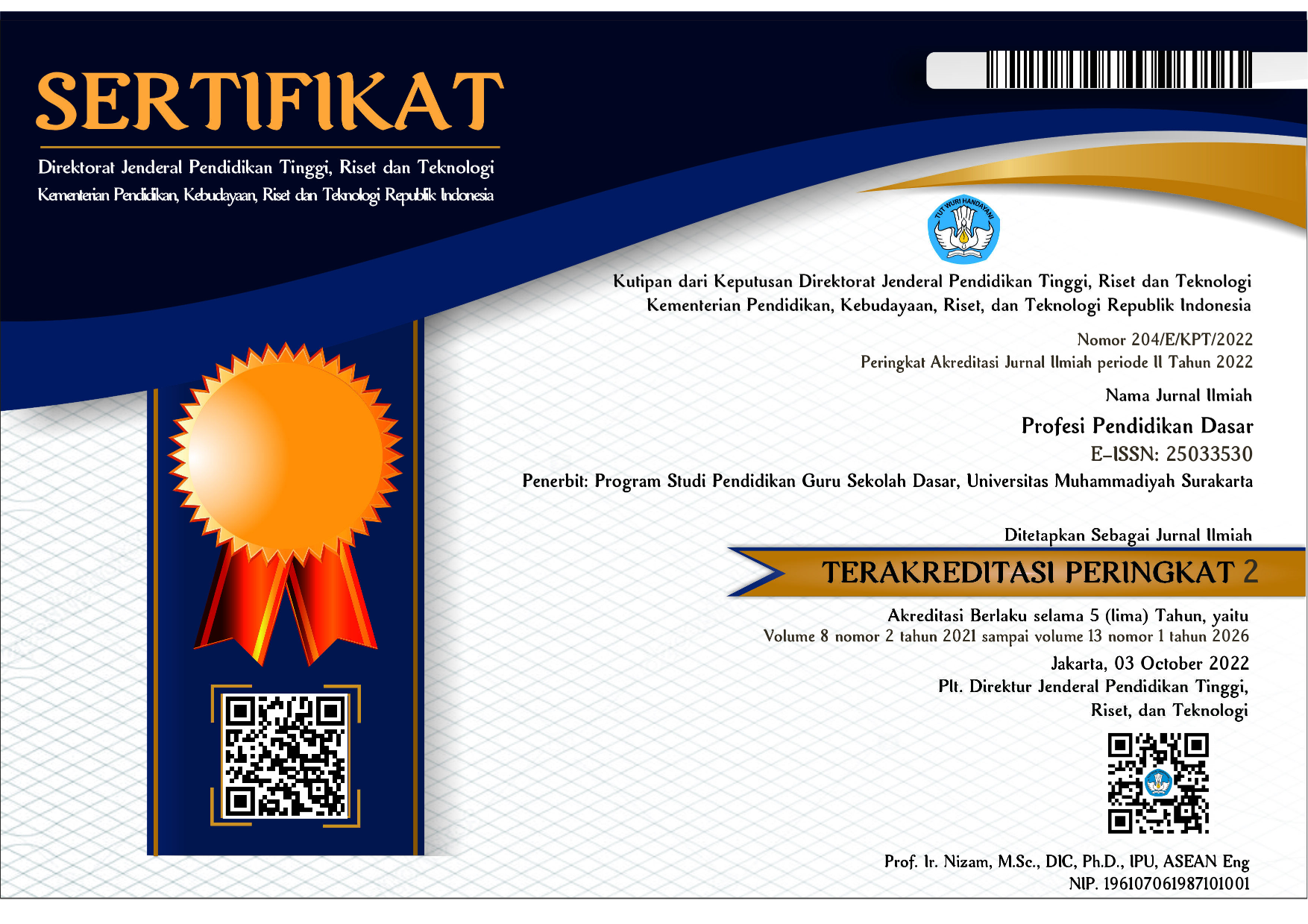KEEFEKTIFAN PENDEKATAN REALISTIC MATHEMATICS EDUCATION DENGAN METODE DRIL TERHADAP HASIL BELAJAR MATEMATIKA SISWA KELAS III SD
Widodo Hadi Pratomo(1*)(1) Gokil men
(*) Corresponding Author
Abstract
The problem of this research is does the approach of realistic mathematics education with drill method is effective against mathematics learning outcomes third grade students of SDN Peterongan Semarang in the academic year 2016/ 2017? Based on the problems posed hypotheses as follows: realistic approach to mathematics education with drill method is effective against mathematics learning outcomes third grade students of SDN Peterongan Semarang academic year 2016/ 2017. The goals to be achieved in this study was to determine the effectiveness of the approach is realistic mathematics education methods drill on learning outcomes third grade students of elementary mathematics N Peterongan Semarang in the school year 2016/ 2017. this type of research is quantitative. The population in this study were students of class III Elementary School Peterongan Semarang. The sample class III A control group of 32 students and class III B as an experimental group of 32 students. Experimental research design using a true experimental design, shape chosen is posttest only control group desaign. Data collection tool used is multiple choice test. The results of the t test analyzes is one side (right side) obtained t arithmetic>t table is 5.461>1.670, then Ho is rejected. Thus, the realistic approach to mathematics education with drill methods have the significant difference to student learning outcomes experimental class control class. Acquisition of individual mastery learning in the experimental group that is 100% and the average value of 84.218. A control group with a percentage of 87.5% and the average value of 73.718. So it can be concluded that the approach of realistic mathematics education with drill method is effective against mathematics learning outcomes third grade students of SDN Peterongan Semarang.
Keywords
Full Text:
PDFReferences
Arikunto, Suharsimi. 2010. Prosedur Penelitian Suatu Pendekatan Praktik. Jakarta: Rineka Cipta.
Dimyati dan Mudjiono. 2009. Belajar dan Pembelajaran. Jakarta: Rineka Cipta.
Fajariyah, Nur dan Defi Triatnawati. 2008. Cerdas Berhitung Matematika 3 untuk SD/ MI Kelas III.Jakarta: CV. Grahadi.
Fathurrohman, Muhammad dan Sulistyorini. 2012. Belajar dan Pembelajaran. Yogyakarta: Teras.
Prabawanto, Sufyani dan Mujono. 2006. Model Pembelajaran Matematika. Bandung: UPI Press.
Slameto. 2010. Belajar Dan Faktor-Faktor Yang Mempengaruhi. Jakarta: Rineka Cipta.
Soegeng, A. Y. 2007. Filsafat Pendidikan. Semarang: IKIP PGRI Press.
Sudjana, Nana. 2013. Penilaian Hasil Proses Belajar Mengajar. Bandung: Remaja Rosdakarya.
Sugiato, Yusak. 2009. “Efektivitas Pendekatan Matematika Realistik dalam Meningkatkan Prestasi Belajar Matematika Ditinjau dari Kemampuan Awal Siswa SMK”.http://eprints.uns.ac.id/8924/1/80452107200907021.pdf (diunduh 15 Juli 2016).
Sugiyono. 2014. Metode Penelitian Kuantitatif, Kualitatif dan R&D. Bandung: Alfabeta.
Susanto, Ahmad. 2013. Teori Belajar dan Pembelajaran di SD. Jakarta: Kencana.
Sutarmiyati. 2016. “Penggunaan Metode Drill pada Materi Ajar Penjumlahan Bilangan Pecahan”. i-rpp.com/index.php/jpp/article/download/360/360 (diunduh 15 Juli 2016).
Suwangsih, Erna dan Tiurlina. 2006. Model Pembelelajaran Matematika. Bandung: UPI Press.
Wijaya, Ariyadi. 2012. Pendidikan Matematika Realistik, Suatu Alternatif Pendekatan Pembelajaran Matematika. Yogyakarta : Graha Ilmu.
Article Metrics
Abstract view(s): 1197 time(s)PDF: 938 time(s)
Refbacks
- There are currently no refbacks.


















